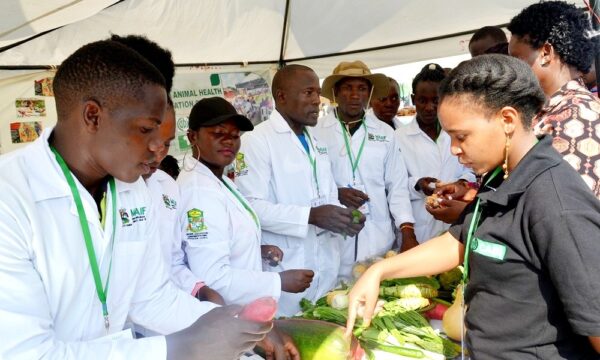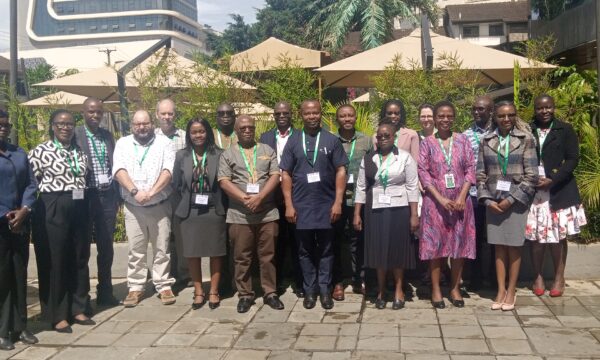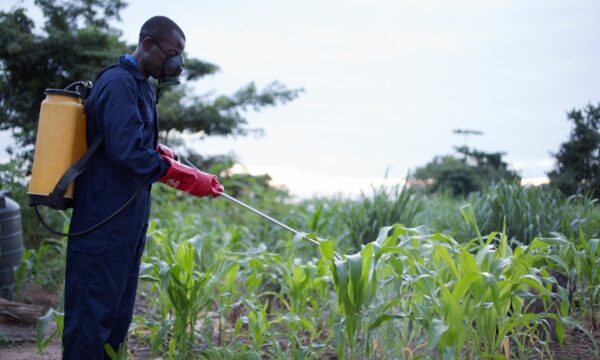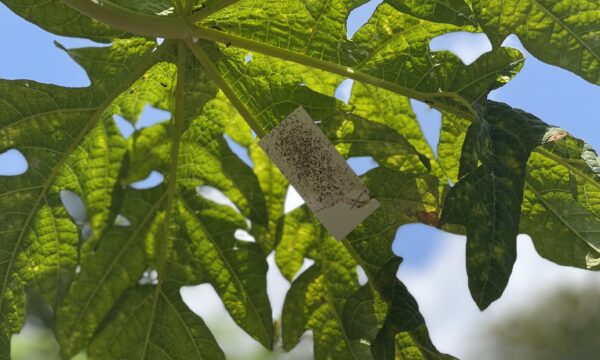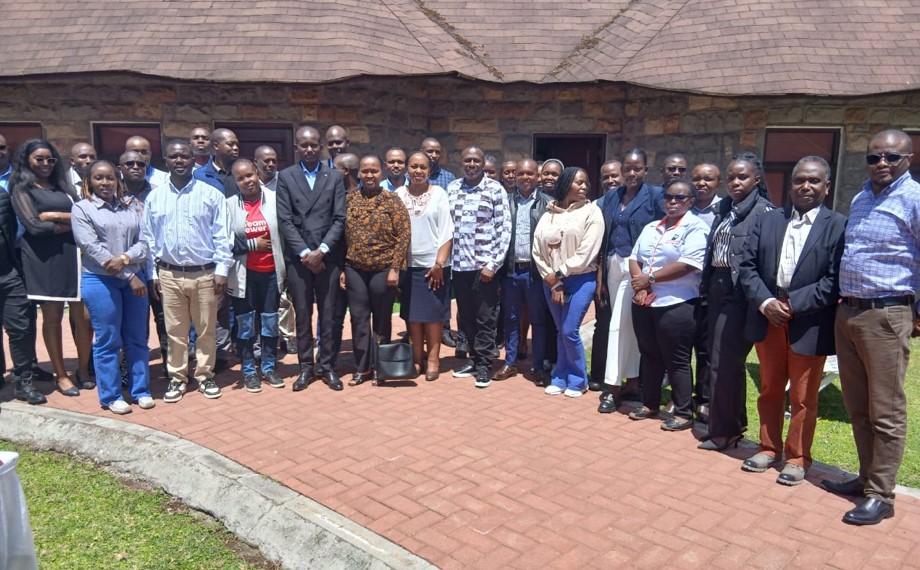
CABI partnered with the Pest Control Products Board (PCPB) of Kenya and the Minor Crops Technical Working Group – Kenya (MCTWG-Kenya) to build the capacity of registration officers from various agrochemical companies in efficacy, residue data, and crop grouping guidelines.
The workshop, which took place from 25 to 27 August 2025 in Naivasha, Kenya, aimed at demystifying the Kenyan efficacy and residue data extrapolation and crop grouping guidelines for registration officers from the agrochemical industry.
It was supported by PlantwisePlus, a global programme that is CABI-led and aims to enable smallholder farmers to grow safe and high-quality foods through sustainable crop production.
Increase the utilization of these guidelines
This will increase the utilization of these guidelines and facilitate timely pest control product registration, as well as the registration of pest control products for use on minor crops. The workshop also contributed to a consultative engagement with the industry partners on the implementation of the guidelines.
All pest control products are required to be registered in accordance with the Pest Control Products Act, Cap 346 Laws of Kenya, before they can be imported, traded, and used in Kenya. Extensive data packages are required for registration of these products to allow reliable risk assessment and justify their use.
The conventional practice in Kenya requires that applicants submit efficacy and residue data for each target pest on each specific crop. Lack of requisite data may lead to failure to authorize products for the market.
The Pest Control Products Board has a mandate to improve access to safe and efficacious pest control products. One way it demonstrates this commitment is through the development of guidelines such as guidelines for efficacy and residue data extrapolation, as well as crop grouping.
Existing authorization to be extended to include additional crops or pests
The Pest Control Products Board, in collaboration with the Agrochemical industry and other stakeholders, developed efficacy and residue data extrapolation guidelines that allow for the existing authorization to be extended to include additional crops or pests without requiring the generation of new/specific data.
The guidelines that are scientific are based on the Codex Alimentarius principles aim to reduce the cost of product registration and the time required in the process. An additional benefit is also to facilitate the approval of pest control products for minor crops.
Although these guidelines were developed and approved for use by PCPB, there has been a very slow uptake of the guidelines by the agrochemical companies, which has been attributed to low understanding and interpretation of the guidelines, and therefore the need for capacity building.
Increase in the registration of products, especially for minor crops
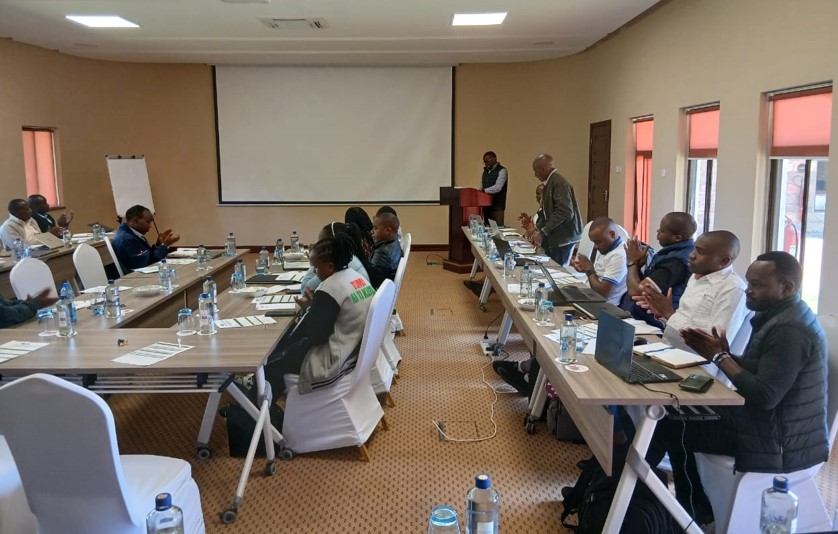
In 2024, PCPB, in collaboration with CABI, organized the first sensitization workshop on crop grouping, which involved participants from the agrochemical industry. This has reportedly led to an increase in the utilization of the guidelines. Consequently, there has been an increase in the registration of products, especially for minor crops.
Ms Sarah Wambugu, the Head of Efficacy and Consumer Safety Division, Registration Department, PCPB, said, “Since Phase 1 of the training, we have seen a gradual and progressive increase in the utilization of the guidelines by the trained registration officers, hence the need for the second workshop to reach those who were not trained in Phase I.”
Phase II of this program involved 36 registration officers from various agrochemical companies, including Osho Chemicals, Amiran K Ltd, Bayer Crop Science, Murphy Chemicals, among others. Also, present were select members of the minor crops technical working group, led by the Chairman, Mr Patrice Ngenga, from the Fresh Produce Exporters Association (FPEAK).
Mr Ngenga said, “We shall continue partnering with CABI and other stakeholders to ensure farmers, especially those who produce minor crops, have access to pest control products promptly.”
Registration of over 200 products
The Minor Crop Technical Working Group (MCTWG), formed in 2017 to facilitate the registration of products for use in minor crops, has led to the registration of over 200 products, with many more in the pipeline awaiting registration.
Mr Ngenga said, “The minor crops technical working group is composed of various stakeholders drawn from private and national competent authorities, such as the Pest Control Product Board (PCPB), Kenya Plant Health Inspectorate Services (KEPHIS), AFA-HCD, KALRO, FPEAK, FPC Kenya, CABI, COLEAD, Minor Use Foundation, manufacturers, and distributors of agrochemicals.”
Dr Geofrey Ongoya, a member of the minor crops technical working group and CEO of the Integrated Biopesticides Manufacturers Association (IBMA Kenya), said, “This training has come at a time when the industry needs to adopt cost-saving measures to ensure business sustainability. The use of crop grouping guidelines will ensure a reduced cost in the registration of products, as well as save time for the companies and the regulator.”
Extrapolation allows for an existing authorization to be extended to include additional crops or pests in the absence of specific data, which reduces the duration and the cost of registration.
The team recommended a study to further understand the opportunities, challenges, and lessons learnt in the use of crop grouping guidelines, noting that this will inform further improvement and capacity enhancement of other users in Kenya and beyond.
Additional information
Main image: Participants from PCPB, Minor Crops Technical Working Group, and agrochemical companies who took part in the training.
Related News & Blogs
Youth leading Africa’s food future: Meet Mary Mueni, a young Kenyan at the forefront of agribusiness innovation
Mary Mueni graduated with a degree in Entrepreneurship Management, but faced an uncertain future until a youth training initiative. (Image: LensAfrik) We meet Mary Mueni in May 2025, in Wote Nziu, Makueni County, Kenya, where she is leading a hands-on…
12 August 2025

